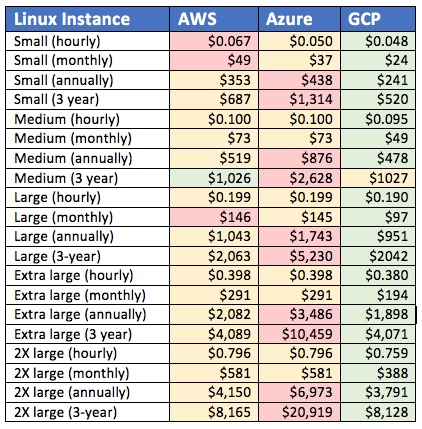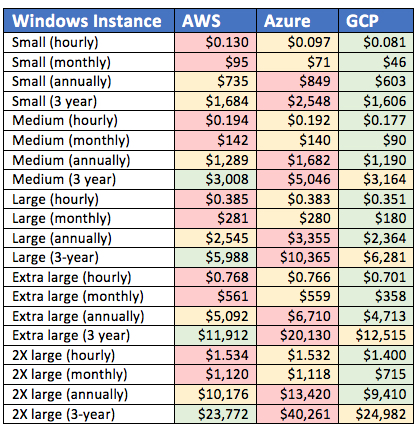
Photo by Annie Spratt on Unsplash
Big Tech is trying to make good on promises like leaving acquisitions alone and not using your personal data for evil things. But when the pressure to earn rises to unbearable levels, will those words still hold true?
California is trying to hold these companies responsible and give consumers more control over the data collected about them, but will these laws help or confuse an already complicated situation?
Finally, since we are on the topic of privacy, you might want to think twice before sending your cheek swab to one of those DNA companies… there isn’t much governance on what they are (and what the authorities) are doing with that data.
Acquisitions/Investments
- LinkedIn CEO Jeff Weiner: ‘Satya Has Made Good’ On Microsoft’s Acquisition Agreement
One of the biggest reasons why Microsoft is taking its time on pushing integrations is to avoid making mistakes. LinkedIn is Microsoft’s largest acquisition to date so it has to move with caution.
Microsoft wants to avoid making integration mistakes that it made in the past. In 2012, Microsoft had written off the $6.2 billion acquisition of digital ad company aQuantive. And Microsoft also saw a quarterly loss in 2015 due to $8.3 billion in charges related to the restructuring of its phone hardware operations following the $9.5 billion acquisition of the Nokia Devices and Services business.
Microsoft CFO Amy Hood pointed out that one of the goals of the LinkedIn acquisition was to accelerate the growth of the professional social network along with Office 365 and Dynamics 365.
https://pulse2.com/linkedin-satya-has-made-good-on-acquisition/
- Remembering the startups we lost in 2019
A cursory look at this year’s batch of companies doesn’t find any story quite as spectacular as last year’s big Theranos flameout, which gave us a best-selling book, documentary, podcast series and upcoming Adam McKay/Jennifer Lawrence film. Some, like MoviePass, however, may have come close.
And for every Theranos, there are dozens of stories of hardworking founders with promising products that simply couldn’t make it to the finish line. There’s also room for debate about what is and isn’t a startup. For our purposes, we’re focusing here on independent startups, not digital initiatives from larger companies — though in at least one case, the startup was acquired by a larger company before shutting down.
Security/Privacy
- GDPR was just a warmup. CCPA will arrive with a bang.
“We’ve already talked to some companies who either have decided or are considering to pull their marketing programs from California. So there may be some fallout. It might just be a temporary thing for them to see where the cards fall,” said Rachel Glasser, global chief privacy officer at Wunderman Thompson.
Even if only temporarily, advertiser pullback would put publishers’ and ad tech companies’ businesses in a bind. But those companies are also facing more permanent predicaments.
Any company that sells California residents’ personal information under the law’s broad definition of sale is required to put a “clear and conspicuous” link on its homepage titled “Do Not Sell My Personal Information” for people to request the company to stop selling their information.
https://digiday.com/marketing/gdpr-just-warmup-ccpa-will-arrive-bang/
What Does California’s New Data Privacy Law Mean? Nobody Agrees“Companies have different interpretations, and depending on which lawyer they are using, they’re going to get different advice,” said Kabir Barday, the chief executive of OneTrust, a privacy management software service that has worked with more than 4,000 companies to prepare for the law. “I’ll call it a religious war.”
The new law has national implications because many companies, like Microsoft, say they will apply their changes to all users in the United States rather than give Californians special treatment. Federal privacy bills that could override the state’s law are stalled in Congress.
The California privacy law applies to businesses that operate in the state, collect personal data for commercial purposes and meet other criteria like generating annual revenue above $25 million. It gives Californians the right to see, delete and stop the sale of the personal details that all kinds of companies — app developers, retailers, restaurant chains — have on them.
https://www.nytimes.com/2019/12/29/technology/california-privacy-law.html
- What You’re Unwrapping When You Get a DNA Test for Christmas
But is using one of these kits also opening the door to letting the police use your DNA to arrest your cousin? The answer in this rapidly evolving realm depends largely on which sites you join and the boxes you check off when you do. And even if you never join any of these sites, their policies could affect you so long as one of your 800 closest relatives has.
**
To identify a suspect’s blood, for example, investigators do not need to find the person who cut his hand smashing through a window. They just need to match to a couple of his second or third cousins in a DNA database. From there, a genetic genealogist can puzzle out how these cousins are related to one another and the suspect by building out a series of family trees. Often this leads to an arrest.https://www.nytimes.com/2019/12/22/science/dna-testing-kit-present.html
Infrastructure/Hardware
- IBM’s Seawater Battery Making Waves
IBM is essentially announcing a potential alternative to lithium-ion batteries – and not just an alternative to some of the main ingredients. What’s more, IBM states the batteries perform even better than current lithium-ion batteries. Citing greater efficiency, faster charging, as well as higher power and energy density. These batteries are not just environmentally sound, but are also more capable in general. Further adding to their appeal, IBM states they are cheaper to produce thanks to their lack of heavy metals.
The issue is that they are currently far from being in a finished state. IBM’s announcement does not even suggest the company intends to build the batteries itself. Instead, the collaboration with the other vested companies is intended to flesh out the technology and create an environment where it becomes easier for other companies to produce the seawater-sourced batteries in the future.
- Huawei reportedly got by with a lot of help from the Chinese government
Huawei reportedly had “access to as much as $75 billion in state support,” according to a piece published by The Wall Street Journal on Christmas Day.
That massive figure is culled from poring over various forms, including grants and tax breaks. Huawei, for its part, isn’t denying any government support, but said in response that what it received was “small and non-material,” in line with the usual variety of grants awarded to tech startups and companies.
Per WSJ’s accounting of public records, Huawei got around $46 billion in loans and other support, coupled with $25 billion in tax cuts used to accelerate tech advances.
Other
- Accenture: Remaining Bullish And Raising Target Price Post Earnings
Per our industry-wide analysis and Accenture’s favorable fundamentals, and given the company’s strong top-line growth, we believe that ACN shares merit ~29x P/E multiple on 2019 earnings. When we apply it to our 2019 EPS estimate of $8.65 (up from $8.49), we get the target price of $251 (up from $245). We note that this P/E multiple is contingent on the S&P multiple of ~18x, and may expand/contract together with the multiple.
Risks:
While Accenture strives to make the pricing structure attractive to its core clients and, henceforth, attract greater business, we see a number of Indian players, such as Infosys, Tata Consultancy, and Wipro, potentially lowering prices in the foreseeable future. In addition, there are smaller players that are threatening Accenture in Europe, such as Epam and Luxoft.
The company heavily relies on H1-B and L-1 visas; over the last several years Congress attempts to heavily regulate the number of visa works each company can hire. Should the H1-B and L-1 visas become even more limited, there could be a 40-60 bps negative impact to Accenture’s margin.
- Uber Co-Founder Travis Kalanick Departs Board, Sells All His Shares
The exit punctuates a decade in which Silicon Valley investors pumped startups with extraordinary sums of money and granted their founders vast power and a mandate to grow at breakneck speeds.
Uber and Mr. Kalanick were the archetype of this model, as Mr. Kalanick raised over $14 billion in equity and debt from outside investors who bought into his expansive vision and energetic approach. At its peak, Uber was the most valuable startup in the U.S., with a valuation of about $68 billion.
The move by Mr. Kalanick to sell his shares was set in place multiple months ago, said people familiar with the matter, and called for him to sell shares daily until his holdings wound down to zero.
https://www.wsj.com/articles/uber-co-founder-travis-kalanick-to-depart-companys-board-11577196747
















